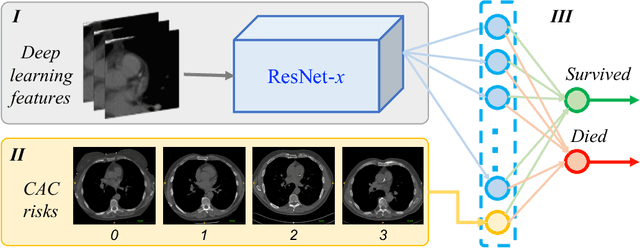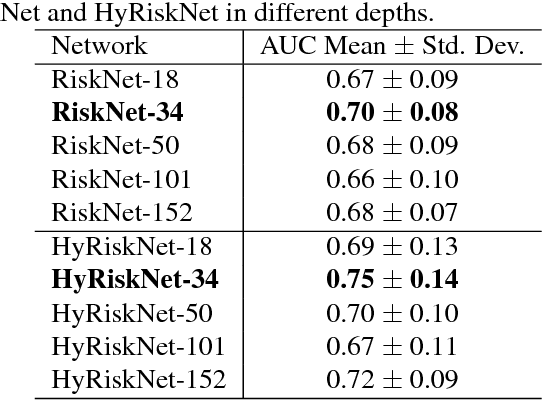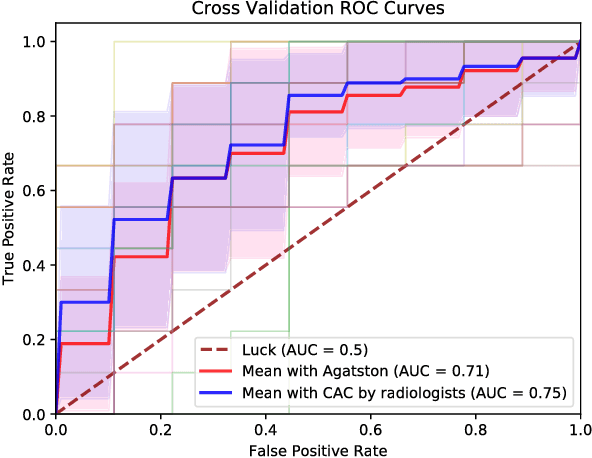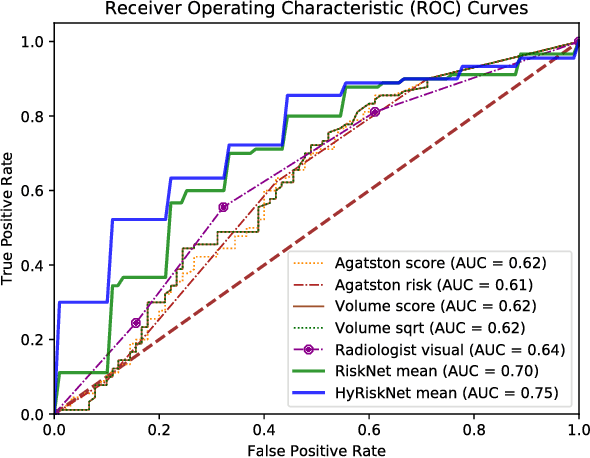Hybrid deep neural networks for all-cause Mortality Prediction from LDCT Images
Paper and Code
Oct 19, 2018



Known for its high morbidity and mortality rates, lung cancer poses a significant threat to human health and well-being. However, the same population is also at high risk for other deadly diseases, such as cardiovascular disease. Since Low-Dose CT (LDCT) has been shown to significantly improve the lung cancer diagnosis accuracy, it will be very useful for clinical practice to predict the all-cause mortality for lung cancer patients to take corresponding actions. In this paper, we propose a deep learning based method, which takes both chest LDCT image patches and coronary artery calcification risk scores as input, for direct prediction of mortality risk of lung cancer subjects. The proposed method is called Hybrid Risk Network (HyRiskNet) for mortality risk prediction, which is an end-to-end framework utilizing hybrid imaging features, instead of completely relying on automatic feature extraction. Our work demonstrates the feasibility of using deep learning techniques for all-cause lung cancer mortality prediction from chest LDCT images. The experimental results show that the proposed HyRiskNet can achieve superior performance compared with the neural networks with only image input and with other traditional semi-automatic scoring methods. The study also indicates that radiologist defined features can well complement convolutional neural networks for more comprehensive feature extraction.
 Add to Chrome
Add to Chrome Add to Firefox
Add to Firefox Add to Edge
Add to Edge